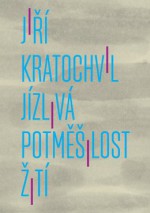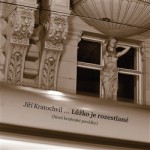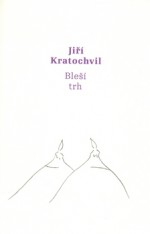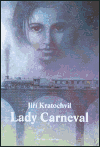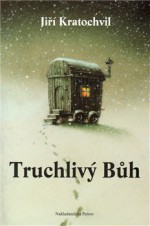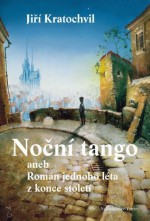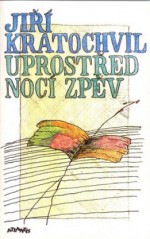Novelist, essayist, playwright. He is the recipient of many literary awards including the Tom Stoppard Prize (1991), the Egon Hostovský Award (1996), the Karel Čapek Award (1998) and the Jaroslav Seifert Award (1999). His books have been translated into several foreign languages including German, Spanish, French, Bulgarian and Hungarian. He was born in Brno on 4 January 1940 and his works are mainly connected with this city.
Jiří Kratochvil
| Title | Publisher | Year | Selected published translations | Awards |
|---|---|---|---|---|
| Fox into a Lady (Liška v dámu) | Druhé město | 2019 |
2020 Magnesia Litera – Prose |
|
| Bakshish (Bakšiš) | Větrné mlýny | 2018 | ||
| The Bitter Maliciousness of Living (Jízlivá potměšilost žití) | Druhé město | 2017 | DE | |
| The Bed Is Unmade (New Brno Tales) ( ...Lůžko je rozestlané; Nové brněnské povídky) | Druhé město | 2015 | ||
| Flea Market (Bleší trh) | Druhé město | 2014 | ||
| Alpha Centauri (Alfa Centauri) | Druhé město | 2013 | ||
| Good Night, Sweet Dreams (Dobrou noc, sladké sny) | Druhé město | 2012 | ES | DE | |
| Circular Snare (Kruhová leč) | Druhé město | 2011 | ||
| Femme Fatal (Femme fatale) | Druhé město | 2010 | DE | |
| The Promise (Slib) | Druhé město | 2009 | ES | DE | |
| Invisible Stories (Neviditelné příběhy (spolu s dalšími autory)) | Listen | 2007 | ||
| Stories of the Town of Brno (Brněnské povídky) | Druhé město | 2007 | NL | DE | |
| Actor (Herec) | Druhé město | 2006 | ||
| Immortal Story (Nesmrtelný příběh, aneb, Život Soni Trocké-Sammlerové, čili, Román karneval) | Petrov | 2005 | RU | DE | |
| Lady Carnival (Lady Carneval) | Petrov | 2004 | ||
| Lie Down, Beast (Lehni, bestie) | Petrov | 2002 | PL | |
| Nostalgic and Ironic Brno (Brno nostalgické i ironické) | Petrov | 2001 | ||
| Declaration of Love to/from the Nature of the Story (Vyznání příběhovosti) | Petrov | 2000 | ||
| Despondent God (Truchlivý Bůh) | Petrov | 2000 | DE | |
| Nocturnal Tango (Noční tango) | Petrov | 1999 |
1999 Jaroslav Seifert Prize |
|
| Ur-Bear (Urmedvěd) | Petrov | 1999 | ||
| And Granny Celebrates her Ninety-Ninth Birthday (A babička slaví devětadevadesáté narozeniny) | Městské divadlo Brno | 1999 | ||
| Exercises for the Blind (Slepecká cvičení) | Atlantis | 1997 | ||
| Immortal Story (Nesmrtelný příběh, aneb, Život Soni Trocké-Sammlerové, čili, Román karneval) | Atlantis | 1997 | RU | DE | |
| Stories of Stories (Příběhy příběhů) | Atlantis | 1996 | ||
| Siamese Story (Siamský příběh) | Atlantis | 1996 | ||
| Avion (Avion) | Atlantis | 1995 |
1996 Egon Hostovský Prize |
|
| Orpheus from Koenig (Orfeus z Kénigu) | Atlantis | 1994 | ||
| O Postmodern, My Love (Má lásko, postmoderno) | Atlantis | 1994 | ||
| Singing in the Middle of the Night (Uprostřed nocí zpěv) | Atlantis | 1992 | ES | IT | FR | DE | |
| A Bear’s Novel (Medvědí román) | Atlantis | 1990 |
1991 Tom Stoppard Prize |

Invisible Stories
Neviditelné příběhy (spolu s dalšími autory)

And Granny Celebrates her Ninety-Ninth Birthday
A babička slaví devětadevadesáté narozeniny

Exercises for the Blind
Slepecká cvičení
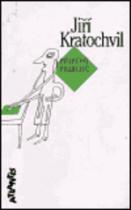
Stories of Stories
Příběhy příběhů
| Award | Year | Country |
|---|---|---|
| Magnesia Litera – Prose | 2020 | Česká republika |
| Jaroslav Seifert Prize | 1999 | Česká republika |
| Karel Čapek Prize | 1998 | Česká republika |
| Egon Hostovský Prize | 1996 | Česká republika |
| Tom Stoppard Prize | 1991 | Česká republika |
Praise
Kratochvil enhances the fragile poetic of a Bohumil Hrabal with the rough churlishness of a Günter Grass; he combines the cynicism of a Milan Kundera with the dreaming of a Bruno Schulz.
—Andreas Breitenstein
Neue Zürcher Zeitung
He studied Czech and Russian at Masaryk University in Brno. He was banned by the Communists at the start of the 1970s and his first samizdat work, Případem nevhodně umístěné šance (The Case of the Inappropriately Placed Chance), appeared in 1978. In the same year Medvědí román (A Bear’s Novel) also came out in samizdat form. The book, with its three narrative strands, is set in the totalitarian state of Island, which is an allegory for Czechoslovak totalitarianism. Here the fake bear leader is trying to train a fake bear to get into high politics. It is a multilayered, almost reflectively told story, in which the author discovered his narrative poetic – and which he still uses to some extent to this day. Although he may be describing a real historical period (the Nazi Protectorate, the war or the Communist era) he uses a postmodern style through allegory, hyperbole or fantastical worlds.
Kratochvil has worked as a heating operator, a night-watchman and a manual labourer. It was only after the revolution that his novels reached a mass readership – in quick succession Atlantis published Medvědí román (1991, and eight years later Petrov publishers brought it out again under its original title of Urmedvěd [Ur-Bear]), the novel Uprostřed nocí zpěv (Singing in the Middle of the Night, 1992), two short-story cycles, Má lásko, postmoderno (O Postmodern, My Love, 1994) and Orfeus z Kénigu (Orpheus from Koenig, 1994), the novel Avion (1995), the essays Příběhy příběhů (Stories of Stories, 1995), the novel Siamský příběh (Siamese Story, 1996) and the celebrated novel-carnival Nesmrtelný příběh (Immortal Story, 1997).
This “whirlwind” of novels came to an end with Noční tango (Nocturnal Tango, Petrov, 1999), about which the critic Petr Chleboun wrote: “I understand this novel really as ‘deconstructing its own architecture’ and examining the principles by which it can be put back together again. None of Kratochvil’s other books have attempted anything similar on such a grand scale.”
There then followed the novel Truchlivý Bůh (Despondent God, Petrov, 2000) and the fantastical Lehni, bestie (Lie Down, Beast, 2002), in which a distinctly fanciful story from Brno in the 1950s reflects on the attacks of September 11. The last story in this loose trilogy is Lady Carneval (Lady Carnival, Petrov, 2004), which plays with the story of a nurse called Olga Abelová who looked after the then president of Czechoslovakia, Gustáv Husák, following an operation and became a prominent part of the regime, and finds herself pilloried following its overthrow. The critic Radim Kopáč commented on the book, “How to read this book? As the work of an outstanding narrator, alternating between a detective-horror with touches of irony, or as a narrator who is first and foremost a storyteller, or as an oppressive, timeless parable and an equally serious literary parallel to Kratochvil’s own experiences in life?”
This was followed by the novel Herec (Actor, Druhé město, 2006) and the collection Brněnské povídky (Stories of the Town of Brno, Druhé město, 2007). The novel Slib (The Promise, Druhé město, 2009) is a requiem for the 1950s, and Femme fatale (Druhé město, 2010) is about a banned writer who becomes a star overnight due to a change in the regime. The novel Dobrou noc, sladké sny (Good Night, Sweet Dreams, Druhé město, 2012) describes one day in the newly liberated Brno, where the main character searches for penicillin for a Jewish sanatorium. The novel Alfa Centauri (Alpha Centauri, Druhé město, 2013) is the story of an orphan which is surprisingly set almost in the present day.


